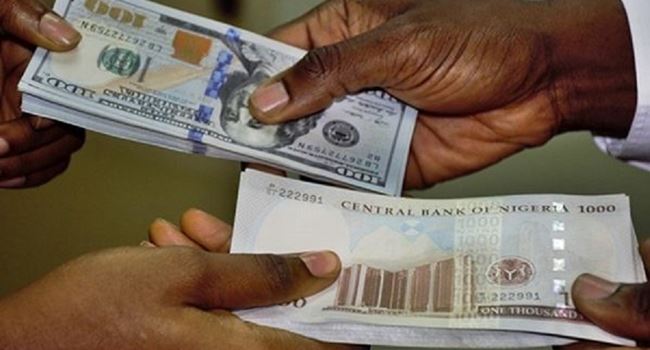The Nigerian Naira faced further devaluation against the US Dollar, both officially and on the parallel market, amidst sustained demand pressure, exacerbating the currency’s weakness.
Despite the Central Bank of Nigeria’s (CBN) implementation of various measures to boost foreign exchange (forex) liquidity, the Naira depreciated by 4.1% against the dollar, closing at N1,479.47 after trading hours, as reported by the NAFEM, the official forex trading platform.
This marks a significant decline of N60.69 or 4.1% compared to Wednesday’s previous closing rate of N1,418.78. Notably, the intraday high reached N1504/$1, while the intraday low hit N946.82/$1, reflecting a substantial spread of N557.18/$1.
Forex turnover at the close of trading stood at $321.23 million, a robust 57.52% increase from the previous day’s figures, as per the official NAFEM window data. Despite this, external reserves remained stagnant at around $33 billion, unchanged from the year’s outset.
The official market exchange rate surpassed N1400/$1 on January 30, 2024, and has persistently stayed above this threshold since then, reaching an intra-day high of over N1,500 for the eighth consecutive day.
In the parallel market, where trading occurs unofficially, the dollar soared to as high as N1,500/$1, with the pound sterling at £1/N1,890 and the euro at EUR1/N1,600. Since January 25, 2024, the parallel market has hovered around N1400/$1, spiking to N1,500 on February 2, 2024.
In the cryptocurrency market, where stablecoins are used for forex transactions, the exchange rate stood at N1,489/$1 during our late Thursday check. Since crossing the N1,400 mark on January 25, the cryptocurrency market has remained close to N1500/$1.
Black market operators informed Nairametrics that demand pressures continued to mount as more Nigerians opted for dollarization, holding a significant portion of their assets in dollars to hedge against soaring inflation, which stood at 28.9% as of December 2023.
The CBN recently signalled its monetary policy direction by accepting treasury bill bids at a staggering 19% per annum, aiming to attract forex inflows. Already, this move has led to an uptick in daily forex turnover, reflecting the central bank’s efforts to stabilize the currency.


